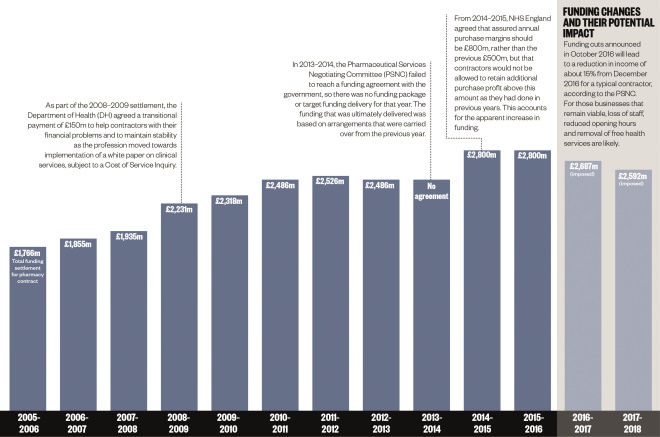
JL / Shutterstock.com
The Pharmaceutical Services Negotiating Committee (PSNC) is to write to Matt Hancock to “correct assumptions” made in a government impact assessment of the current community pharmacy contract, which was revealed by The Pharmaceutical Journal.
In a statement issued following the publication of the internal Department of Health and Social Care (DHSC) document, the PSNC said it would write “privately” to both the health secretary and other health ministers owing to its objection “to some of the DHSC assumptions set out within the impact assessment”.
The impact assessment was obtained by The Pharmaceutical Journal under a freedom of information request, and it revealed that the government was warned that some pharmacies could “become financially unviable and close” as a result of cost pressures from launching new services under the contract.
The assessment of the community pharmacy contractual framework (CPCF) for 2019/20 to 2023/24 was dated 11 July 2019 — shortly before publication of the full framework — and describes how the deal would “create winners and losers across pharmacy contractors”.
The contract framework, which was published on 22 July 2019, outlined government plans to introduce more clinical services in the community pharmacy setting, while maintaining flat funding of £2.592bn per year for five years.
The PSNC said it was unhappy with claims made in the impact assessment that the transitional payment agreed as part of the five-year settlement has helped to alleviate contractors’ costs.
“This would never have been the case without an increase to the contract sum and we will ensure that ministers have clarity on this point,” the statement said.
It also said that the PSNC had “repeatedly made our reservations clear” on claims that introducing information technology and automation to dispensing would bring savings for pharmacies, and that it had “seen no evidence” that cost savings brought about by stopping the provision of MURs [medicines use reviews] would cover the costs of new pharmacy services introduced under the contract.
Simon Dukes, chief executive of PSNC, said: “This impact assessment sheds some more light on DHSC thinking about the five-year CPCF deal, but the key premise that the alternative was to do nothing is misleading. It was made very clear to us during negotiations that the sector needed to demonstrate efficiencies in order to keep flat funding.
“PSNC considered very carefully the impact that the deal would have on pharmacies, and we eventually agreed it with two key concessions from the other side: first, that they would work with us to ease capacity in the sector, and second, that we would have an annual review process. The review process was to enable us to monitor the impact of the deal on the sector very closely, and to argue for changes if they were needed. Similarly, freeing capacity would, we hoped, make delivering the changes set out in the deal more manageable for contractors.
“Progress on both of these points has been inadequate, and since we agreed the deal, COVID-19 has had a sudden and significant impact on community pharmacies’ costs. We are continuing to warn [the] government that without further financial support, we will see pharmacy closures.”
The DHSC told The Pharmaceutical Journal that the assessment displays the government’s early thinking and was developed to support ministers’ decisions on the direction of travel set out in the five-year deal.


